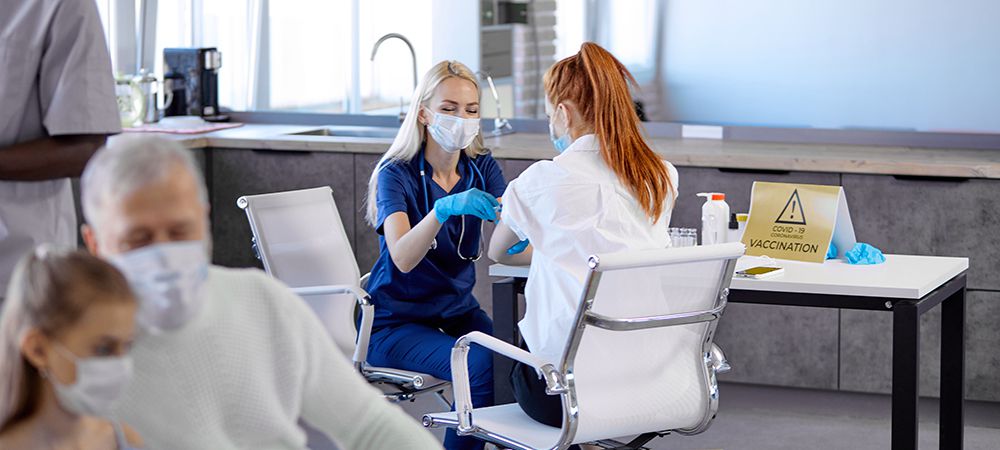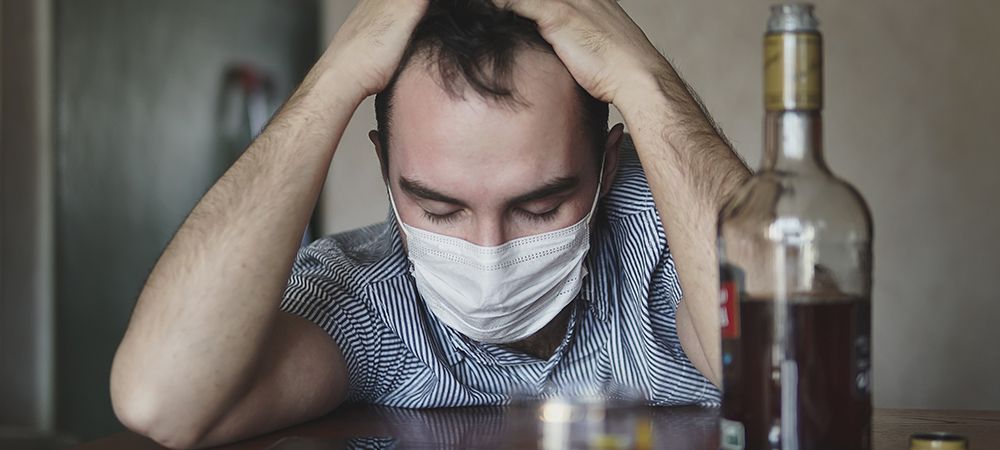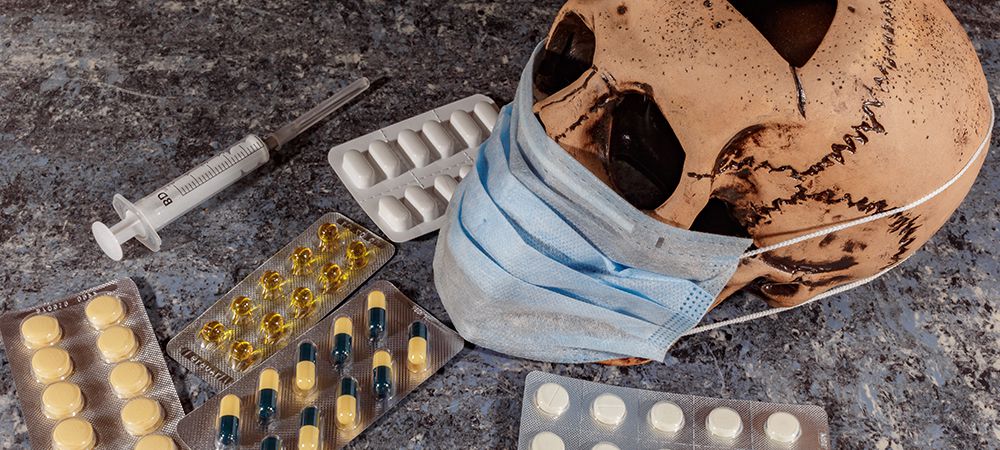Addiction Treatment During COVID-19
The COVID-19 pandemic is changing the way the addiction treatment sector works. Thanks to social distancing and isolation rules, addiction treatment methods that are the norm have become defunct during the COVID-19 pandemic.
The influence of the pandemic goes deeper than addiction treatment methods. In Canada, the pandemic is having a significant impact on the number of addiction-related issues.
According to data from the CCSA, the unique demands of the pandemic are causing an increase in isolation, anxiety, fear and loss of vital social support among substance abusers. Compared to the rest of the populace, people who need addiction treatment are more susceptible to the health effects of the coronavirus and the downsides of social distancing.
The pandemic has also come with higher calls for concerns related to drug availability in Ontario. There are questions about contamination, cost, degree of supply and drug quality. For drug users, the pandemic presents a greater risk than ever before. With a reduction in the service of treatment centres, access to healthcare is limited.
These are just some of the issues of note. This blog will discuss everything there is to know about addiction treatment during the COVID-19 pandemic.
Let’s get right into it!
Addiction During COVID-19: Increase in Substance Abuse
With many news outlets predicting a 4th wave of the COVID-19 pandemic, there’s a need to develop more effective addiction treatment measures. Many businesses are either shutting down their doors or reducing the available work hours.
People are stuck at home without any social activities as a distraction due to measures like social distancing and self-quarantine. The possibility of a 4th wave and its projected effects is why experts are voicing about improving addiction treatment during the COVID-19 pandemic. With stress from boredom, limited access to addiction treatment facilities and recovery resources, the numbers are set to spike sharply.
Take the results of this survey as a reference. The survey focused on recent alcohol and drug use in relation to the pandemic. With over 1000 participants over the age of 18, here’s how drug use is increasing during the COVID-19 pandemic:
- Marijuana: 37% of respondents
- Opioids: 15% of respondents
- Cocaine: 9% of respondents
- Alcohol: 88% of respondents
- Prescription stimulants: 10% of respondents
- Benzodiazepines: 11% of respondents
About 55% of participants in the survey admitted to increasing their alcohol consumption recently. Similarly, 36% of participants admitted to illegal drug use since the start of the COVID-19 pandemic.
The survey also asked participants to identify the causative agents behind their substance abuse.
- 53% were looking to combat stress
- 32% were trying to manage mental health symptoms like anxiety
- 39% were trying to cope with boredom
Effects of the Pandemic on People with Substance Abuse Problems
The need to discuss addiction treatment during the COVID-19 is heightened by the possible risks of the pandemic. Some of the top effects of the pandemic include:
Increased Risk of COVID-19
Alcohol and drug abuse can increase the risk of respiratory and cardiovascular-related issues. This situation puts drug users at a higher risk of contracting the virus.
More Triggers
Isolation and social distancing are causing emotional and physical stressors that trigger the urge to use drugs. For many, stress is the predominant trigger. For others, it’s boredom and loneliness.
Changes in Addiction Treatment
Now, more than ever before, patients must change the way they’re getting addiction treatment. For many patients, keeping up with these changes can be stressful, halting the addiction treatment process.
Reduced Screening for Substance Use
Perhaps the most influential effect of the pandemic on addiction treatment is the stoppage in alcohol and drug tests. Because these tests require saliva and urine, they increase the spread of the coronavirus.
Toxicology monitoring is currently on hold at most addiction treatment centres to protect the safety of patients and testing agents. Before the pandemic, these tests used to be a deterrent for patients with the risk of relapse. Now, it seems like people dealing with substance abuse have an open playing field to use drugs.
Limited Access to Addiction Services
Effective addiction treatment in Vancouver is now at a premium. Because addiction services are prioritizing the safety of their work, residential and inpatient treatment is less popular.
All things being equal, in-patient care is the best form of treatment for addiction. It breaks the drug usage cycle, putting patients in a controlled environment — away from drugs and alcohol. With the COVID-19 situation in Canada, many facilities that provide in-patient care are either limiting their services or even closing down altogether.
Addiction Services are Shifting to Virtual Care

For instance, some patients benefit from one-on-one treatment sessions with their addiction treatment specialists. Such patients can book a telehealth appointment with a professional and continue addiction treatment without losing a beat.
Similarly, some addiction treatment services hold group therapy sessions online with custom procedures and privacy features.
As you would expect, the pivot to virtual addiction treatment in Ontario hasn’t been smooth. For instance, addiction centres have to deal with a reluctance to join online sessions on the part of patients. Furthermore, there’s a glaring lack of technical support to navigate online communication issues during virtual therapy sessions.
Beyond technical and private issues, there is an apparent lack of intimacy with virtual addiction treatment. While it’s better than nothing, virtual addiction treatment is nowhere near as effective as onsite treatment.
The Shift to Online Addiction Forums
While many services are still exploring one-on-one telehealth addiction treatment appointments, others are maximizing the possibilities that online forums offer. With these forums, people struggling with substance abuse have the opportunity to meet and talk to others with similar struggles. These online forums have shown some level of success in preventing relapse related to boredom and loneliness.
The government is also playing its part by releasing directives and resources to help people who require addiction treatment. There are even helplines available for discussions with an addiction treatment specialist who can help you find help during the COVID-19 pandemic.
There’s also the possibility of enjoying support from NGOs who focus on helping addiction patients through these tough times. The following organizations can be beneficial if you need extra support:
- National Institute of Mental Health (NIMH)
- National Institute on Drug Abuse (NIDA)
- Substance Abuse and Mental Health Services Administration (SAMHSA)
- Alcohol Recovery Medicine (ARM)
- National Alliance on Mental Illness (NAMI)
- Alcoholics Anonymous (AA)
Related Article: How to Find the Right Methadone Clinic in Toronto
Is Addiction Treatment During the COVID-19 Pandemic Important?
It’s impossible to relegate the place of alcohol and drug addiction treatment in addiction recovery. And with the unique characteristics of the pandemic, addiction treatment is doubly important.
With effective addiction treatment, you’ll enjoy the following advantages:
Develop Crucial Coping Skills
Addiction treatment centres design activities to help patients cope with addiction symptoms and stress related to the pandemic.
Support from Peers and Dedicated Team
A peer team of people going through similar issues can increase the effectiveness of addiction treatment. You can discuss your experience with people who understand and get practical tips for dealing with issues.
Expert Knowledge from Professionals
Addiction treatment professionals can evaluate the current situation and provide info or updates that can affect your symptoms. They’ll be able to show you how to prepare for pandemic-related eventualities and avoid a relapse, thanks to the level of attention that addiction treatment offers.
Should I Get Addiction Treatment During the COVID-19 Pandemic?
Addiction treatment centres can provide care during the pandemic by working within social distancing and virtual tech boundaries. Addiction services are still able to provide effective help by minimizing risk and patient-therapist exposure.
Here at Inspire Change Wellness Centre, we can provide safe addiction treatment by following these steps:
Screening on Arrival

In doing whatever it takes to keep our patients and staff safe, we advise patients with symptoms to stay home. Instead, we devise telehealth services as a placeholder until the recommended isolation period passes.
In-Facility Precautions
At our facilities, all members of staff and patients must stand at least six feet apart, use a mask and follow cough etiquette. If there are patients who have COVID symptoms, we isolate them in private rooms.
Increased Access to Medication
This part of our addiction treatment program has proven useful to patients who have to come in for medications. Instead of asking patients to come in every day to get their drugs, we’re using pickup schedules and releases to get patients in and out as quickly and less often as possible. By tweaking our policies regarding medication, we’re encouraging drug providers to provide refills without consistent visits.
Reduction in Group Therapy
Before the pandemic, group therapy used to be a crucial part of addiction treatment. However, with social distancing and limits on public gatherings, it’s hard to provide group therapy in small spaces.
Although group therapy uses behavioural techniques to help patients better understand their addiction, we’ve had to let it go. While our patients will lose the opportunity to connect with peers in person, we’re ramping up one-on-one therapy sessions to account for this change.
Telehealth Services
Now more than ever, we’re using technology and all it offers to dispense addiction treatment. With phone calls and live video chatting services, we can safely assess patients, control medication usage and provide effective support to prevent a relapse.
How to Deal With Anxiety and Addiction During the COVID-19 Pandemic
For people with substance abuse problems, anxiety and stress are never too far behind. With the pandemic causing uncertainties in financial situations and physical interaction, anxiety is a serious possibility.
Now, you have the time to dwell on your situation, contemplate negative thoughts and worsen feelings of anxiety. It’s a downward spiral that can be complicated to avoid. Here’s how you can manage anxiety while still getting addiction treatment during the pandemic.
Control Social Media Exposure
Of course, watching the news is the best way to remain informed during the pandemic. But, it may not be all that healthy if you’re dealing with substance abuse. There’s so much gloom and uncertainty in the news that can transfer to your thoughts and feelings.
We advise you to limit social media exposure to verified government channels and loved ones. This way, you’ll only be getting info on state guidelines and positive energy from your friends and loved ones.
Avoid Negativity in All its Forms
Ruminating on all of the negativity connected to the pandemic may seem like a natural thing to do — especially with family and loved ones. However, we find that it’s an unproductive pastime that can cause more harm than good.
The pandemic is not going to get better, thanks to discussions with your family. Instead, these conversations can imprint on your subconscious and start to bring up feelings of anxiety.
Related Article: Methadone: Uses, Side Effects and Risks
Final Words
Addiction treatment during COVID-19 is proving to be an ever-changing landscape. And here at Inspire Change Wellness Centre, we have been able to pivot and adapt our services to provide effective treatment despite a global pandemic.
Contact us today to discuss with our addiction specialists and see how we can help you through a complicated period.



